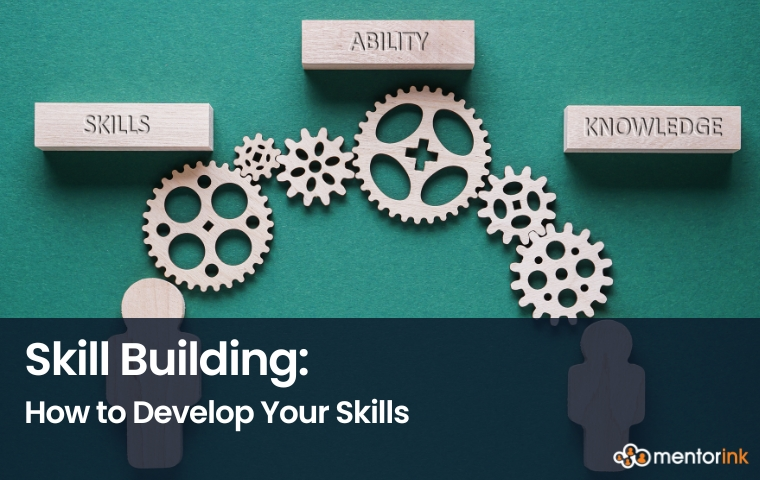
Having new skills can be considered a criterion for success in business life. Until recently, many skills that have been important have become less important as a result of today’s technological developments. Whether you are an employee seeking advancement in your career, a business leader looking to boost the employees, or an individual looking to improve yourself, skill development is critical to success in the work environment. Skill building enables people to adapt to technological improvements, industry changes, and new difficulties. However, skill development is more than just gaining new skills; it is also about improving existing ones via steady learning and practice.
What is Skill Building?
Skill building includes a continuous method of learning, improving, and mastering new abilities in order to advance one’s personal or professional development. This entails identifying areas for growth, participating in learning opportunities, and applying newly obtained knowledge in real-world circumstances. This method may include formal instruction, hands-on experience, self-learning, and mentoring.
Skill building is not limited to technical skills; it also includes soft skills like communication, leadership, and problem-solving. Whether it is daily skill building through small learning habits or structured skill-building activities, this process ensures individuals remain competitive and adaptable in their careers. Businesses can also invest in skill building to upskill or reskill their employees, preparing them for evolving job roles and responsibilities.
Upskilling
Upskilling mainly focuses on enhancing existing skills to improve efficiency and expertise in a particular field. Professionals must keep abreast of emerging trends and technologies as industries change. For example, a marketing specialist may upskill by learning advanced data analytics, or a software developer may take courses on artificial intelligence. Daily skill building through practice, workshops, and online courses can help individuals stay ahead in their careers.
Reskilling
Reskilling, on the other hand, involves learning completely new skills to transition into a different role or industry. With automation and digital transformation reshaping jobs, many professionals are reskilling to stay relevant. A retail employee might retrain to become an e-commerce manager or a factory worker might retrain to become a robotics technician.
Benefits of Skill Development
Developing skills strengthens both individuals and companies by increasing efficiency, inventiveness, and flexibility. Organizations that prioritize skill development programs can produce a more competent workforce, and individuals who engage in personal development open up new employment prospects.
Fostering DEI in the Workplace
Skill building in the workplace plays a significant role in promoting diversity, equity, and inclusion (DEI) in the workplace. By providing learning opportunities for all employees, regardless of background, companies ensure equal access to career growth.
Offering mentorship programs, leadership training, and specialized courses helps underrepresented groups build the skills necessary to advance in their careers. A strong focus on DEI in skill-building initiatives may lead to a more inclusive and innovative work environment.
Lower Turnover Rates
One of the biggest reasons employees leave a job is the lack of career development opportunities. Companies that invest in skill-building activities create a more satisfied workforce, reducing turnover rates. Employees are more likely to remain dedicated to their company when they perceive a clear path for advancement. Reskilling and upskilling initiatives also allow businesses to fill internal roles with existing employees rather than hiring externally.
Ensure Succession Planning
Organizations that focus on skill development are better prepared for succession planning which enable to create new leaders. By identifying high-potential employees and providing them with technical and leadership skills, businesses can make sure that when senior employees retire or move on, the transition goes smoothly. Skill building helps create a pipeline of future leaders who are well-prepared to take on key roles.
Increase Employee Engagement
Employees who are actively learning and developing new skills tend to be more engaged and motivated. Skill-building activities create a sense of purpose and achievement, leading to higher productivity and job satisfaction. When employees feel their company invests in their growth, they are more likely to be loyal and contribute positively to the organization.
Examples of Skills That Can Be Developed
Skill building is not limited to one specific industry or role. Through practice, structured learning, and real-world application, a variety of skills can be developed constantly.
In many different industries, technical skills like programming, data analysis, digital marketing, and artificial intelligence (AI) are highly sought after. These require ongoing training and upskilling to stay relevant.
Soft skills like communication, teamwork, leadership, and emotional intelligence are equally important. Strong interpersonal skills improve workplace relationships and team dynamics, making employees more effective in their roles.
Problem-solving and critical thinking are crucial in today’s complex work environments. Employees who develop analytical skills can tackle challenges more effectively and contribute to innovation within their companies.
Time management and organization skills enhance productivity and efficiency. With remote work and digital collaboration becoming more common, professionals who can manage their time effectively stand out.
Adaptability and learning agility are essential for career growth. With industries evolving rapidly, the ability to learn new skills quickly and adapt to change is a valuable asset.
Mentoring programs, online courses, on-the-job training, and formal education are all ways to develop one’s skills. Daily skill-building habits, such as reading industry articles, taking short courses, or engaging in hands-on projects, also contribute to continuous learning.
The Role of Mentoring in Skill Building
Mentoring is one of the most effective ways to support skill building. Having an experienced mentor can accelerate learning by providing guidance, feedback, and real-world insights. Through mentoring programs, people can learn about the industry from seasoned professionals and hone their technical and soft skills.
Mentoring promotes teamwork and leadership development in the workplace. Employees who engage in mentorship programs tend to feel more supported and confident in their roles. They also gain networking opportunities that can open doors for career advancement.
Mentors assist mentees in overcoming obstacles, establishing professional objectives, and gaining confidence in addition to imparting knowledge. Daily skill-building discussions with a mentor can lead to rapid improvement and professional growth. Organizations that encourage mentorship as part of their skill-building strategy create a culture of continuous learning and development.


